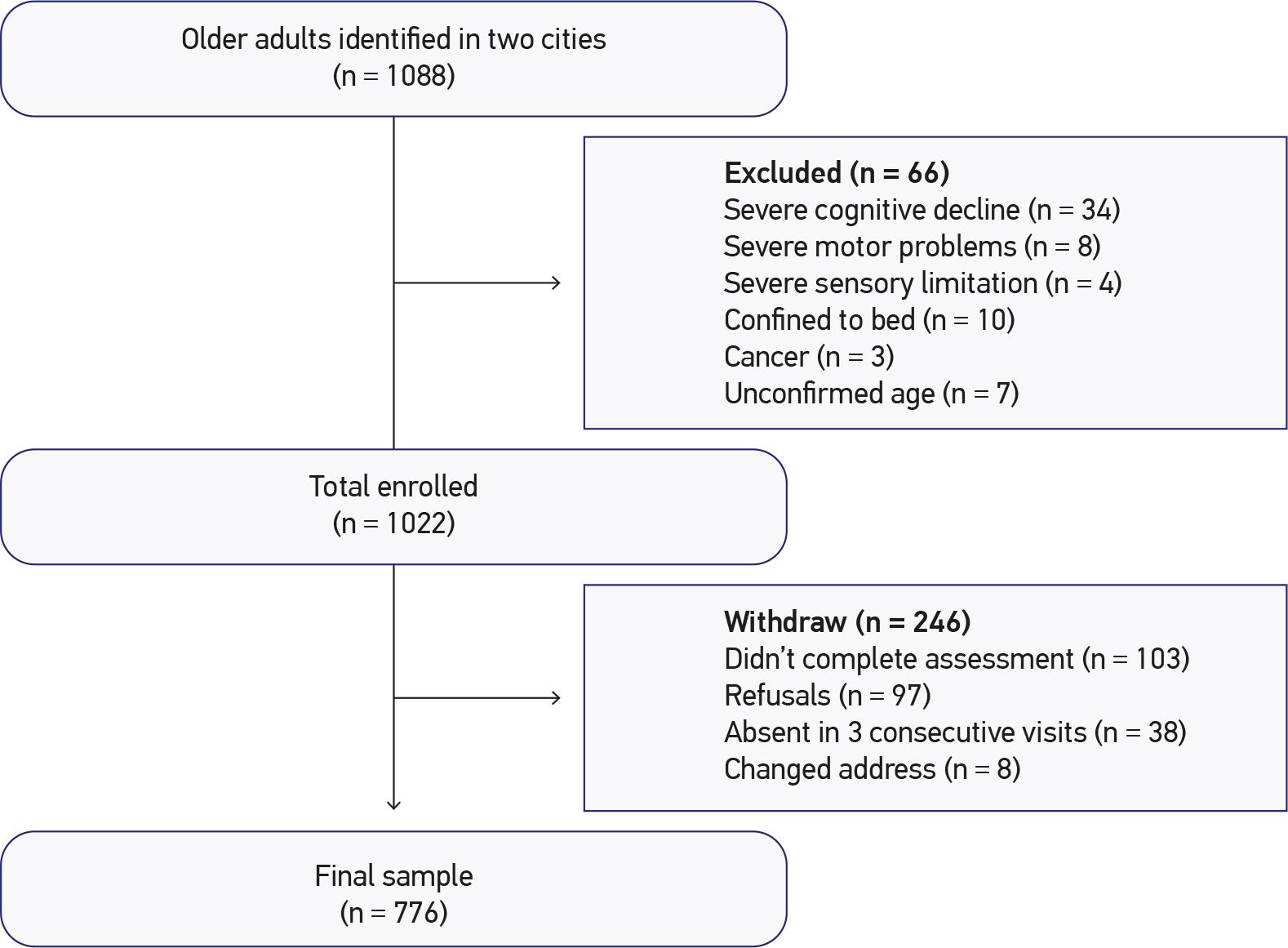Excessive daytime sleepiness (EDS) imposes a wide range of adverse health-related outcomes in older people, such as disability, which impair everyday activities and may increase the risk of fall. Few studies have explored EDS in Brazilian older people living in the community who are typically cared in primary health services. This study aims to investigate the prevalence of EDS and its sociodemographic, physical and mental health correlates among community-dwelling older adults. This is an exploratory, population-based study derived from Frailty in Brazilian Older Adults (FIBRA) study including adults aged 65 years and older. Participants with a score ≥ 11 points on the Epworth Sleepiness Scale were considered as having excessive daytime sleepiness. A structured, multidimensional questionnaire was used to investigate sociodemographic, physical and mental health, and self-rated health variables. The sample was composed of 776 older adults, of whom 21% (n = 162) presented excessive daytime sleepiness. Multivariate regression analysis revealed that EDS is associated with obesity (OR = 1.50; 95%CI 1.02 - 2.20), urinary incontinence (OR = 1.53; 95%CI 1.01 - 2.31), poor self-rated health (OR = 1.54; 95%CI 1.06 - 2.24), and depression symptoms (OR = 1.49; 95%CI 1.00 - 2.20). Our results suggest that healthcare professionals should identify older adults with EDS and implement intervention strategies to minimize the negative impact of the co-occurrence of this condition with obesity, depression and urinary incontinence over health and quality of life.
Sleep disorders; Health of the elderly; Health status; Epworth scale; Cross-sectional studies; Population-based study
